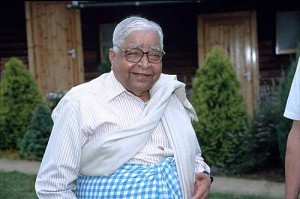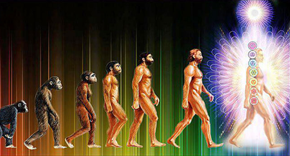Shri S. N. Goenka answers questions about the importance of Vipassana meditation.
 Q. What is the difference between Vipassana and concentration?
Q. What is the difference between Vipassana and concentration?
SNG – Vipassana is not merely concentration. Vipassana is observation of the truth within, from moment to moment. You develop your faculty of awareness, your mindfulness. Things keep changing, but you remain aware – this is Vipassana. But if you concentrate only on one object, which may be an imaginary object, then nothing will change. When you are with this imagination, and your mind remains concentrated on it, you are not observing the truth. When you are observing the truth, it is bound to change. It keeps constantly changing, and yet you are aware of it. This is Vipassana.
Q. You talk about conditioning. Isn’t this training really a kind of conditioning of the mind, even if a positive one?
SNG – On the contrary, it is a process of de-conditioning. Instead of imposing anything on the mind, it automatically removes unwholesome qualities so that only wholesome, positive ones remain. By eliminating negativities, it uncovers the positivity which is the basic nature of a pure mind.
-Art of living by William Hart, VRI
Q. But over a period of time, to sit in a particular posture and direct the attention in a certain way is a form of conditioning.
SNG – If you do it as a game or mechanical ritual, then yes-you condition the mind. But that is a misuse of Vipassana. When it is practiced correctly, it enables you to experience truth directly, for yourself: And from this experience, naturally understanding develops, which destroys all previous conditioning.
Q. What is the ultimate goal of life?
SNG – The ultimate life, the ultimate goal, is here and now… you keep looking for something in the future… this is a delusion. If you have started experiencing peace and harmony now, then there is every likelihood that you will reach the goal, which is nothing but peace and harmony. So experience it now, this moment. Then you are really on the right path.
Q. Would you say that Vipassana is the only way to reach enlightenment?
SNG – Enlightenment is ….. observing oneself and eliminating conditioning. And doing this is Vipassana, no matter what name you may call it. Some people have never even heard of Vipassana, and yet the process has started to work spontaneously in them. This seems to have happened in the case of a number of saintly people in India, judging from their own words.
Q. Is it okay to have a craving for enlightenment?
SNG – It is wrong. You will never get enlightenment if you have a craving for enlightenment. Enlightenment just happens. If you crave for it, you are running in the opposite direction. One cannot crave for a particular result. The result comes naturally. If you start craving, “I must get nibbana, I must get nibbana”, you are running in the opposite direction of nibbana. Nibbana is a state which is free from craving, and you want to reach that state with craving – not possible.
Q. What do you think is the ultimate goal of Vipassana?
SNG – The ultimate aim is to clean the mind. Nirvana is beyond mind and matter. It can come to you anytime depending on how pure you are. In that state, all your senses stop functioning. It could be for a second, a minute, or longer, but for that brief period, you are beyond all sensation, all thought.
Q. I am confused about who is observing and who or what is being observed ?
SNG – No intellectual answer can satisfy you. You must investigate for yourself : ”What is this ‘I’ who is doing all this? Who is this ‘I’?” Keep on exploring, analyzing. See whether any ‘I’ comes up; if so, observe it. If nothing comes then accept, ”Oh, this ‘I’ is an illusion!”.
Q. How to put effort and yet be effortless in observation (meditation) ?
SNG – Effortless is not trying to create a sensation. Effort in observing – in remaining equanimous. Choiceless observation is no craving no aversion.









































